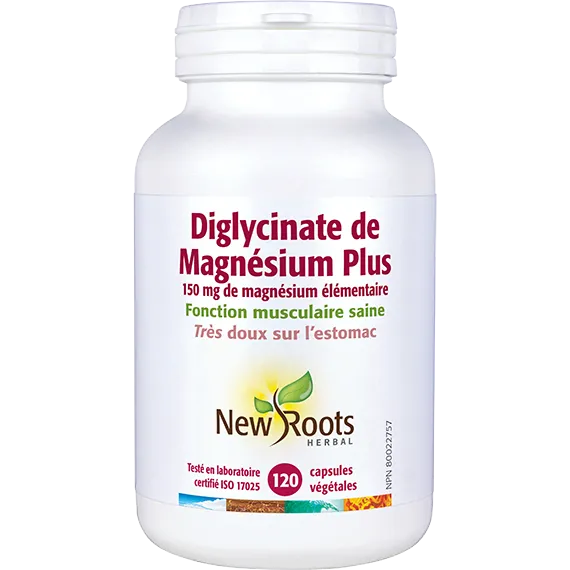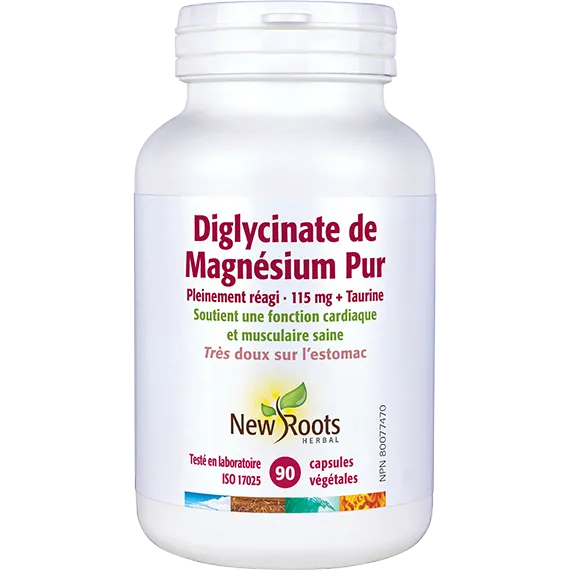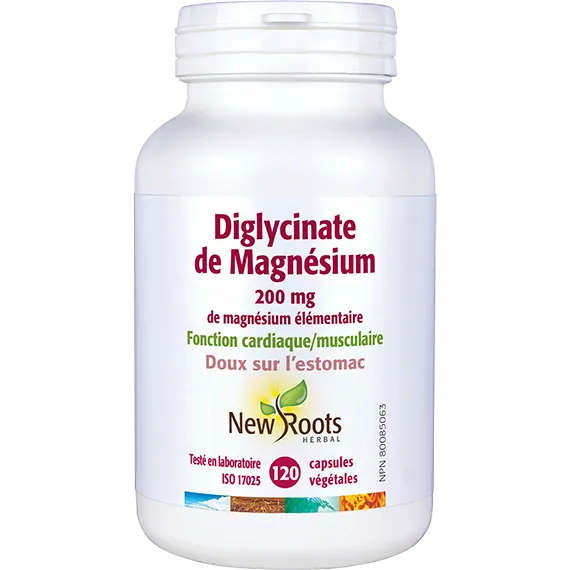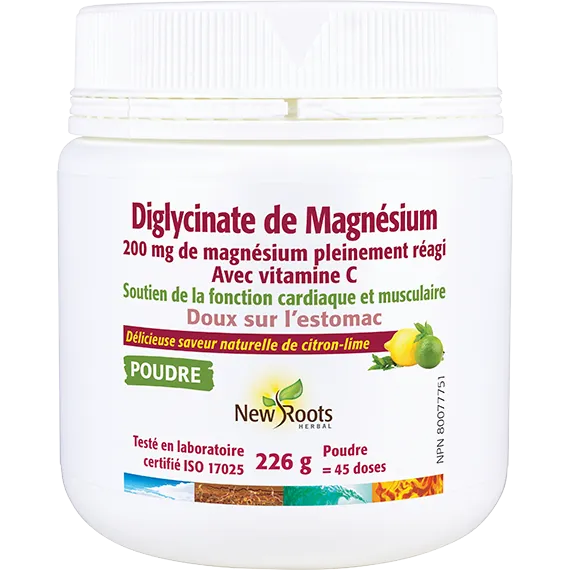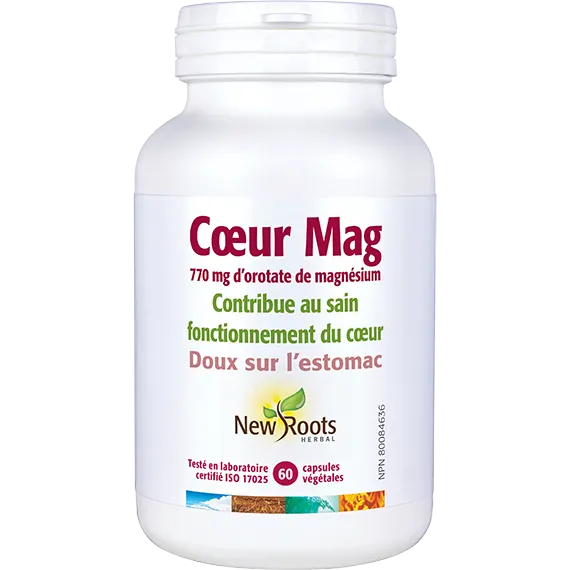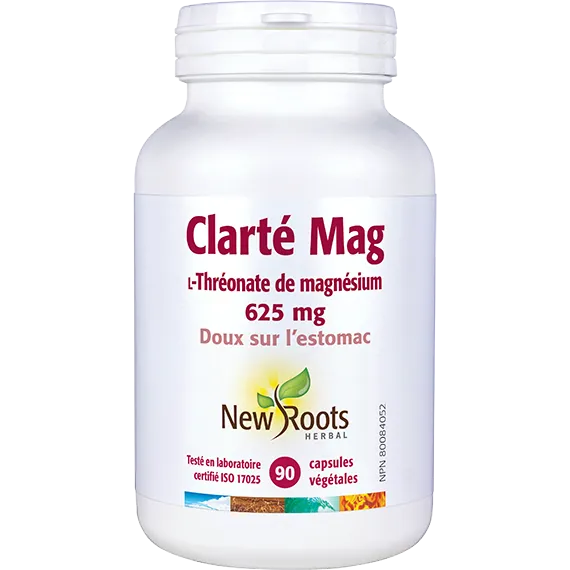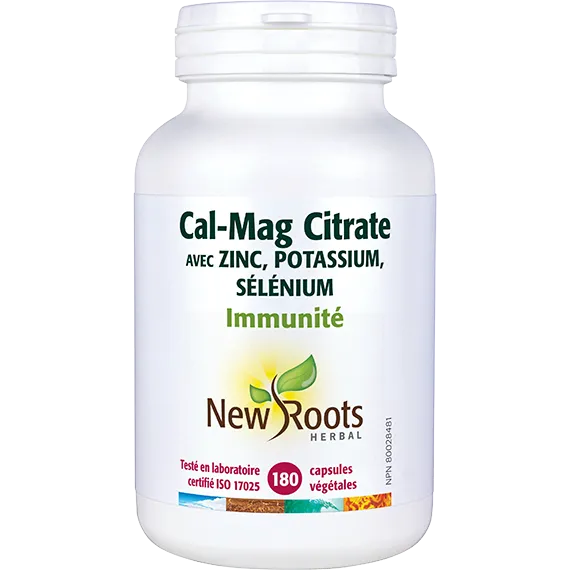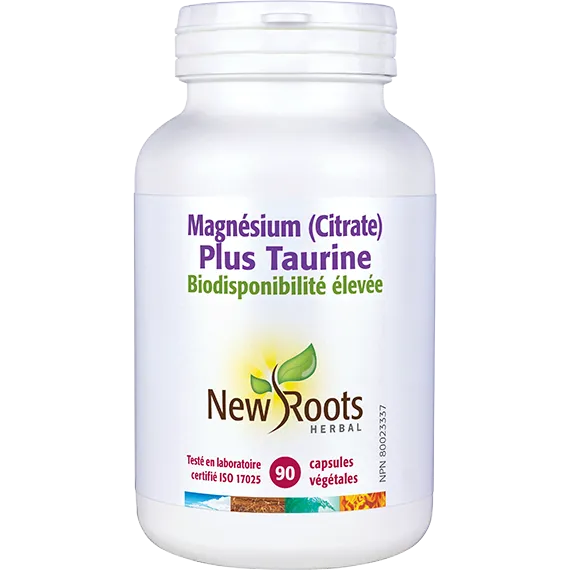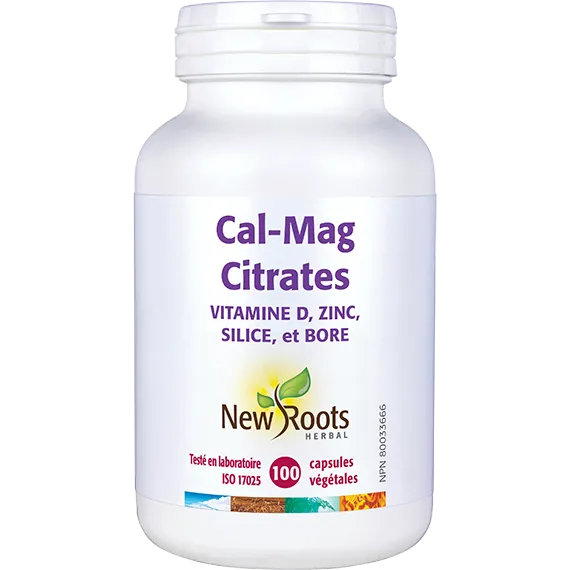Magnésium — Une carence nationale
La carence en magnésium est un phénomène moderne répandu au Canada. De nombreux Canadiens ne consomment tout simplement pas assez de ce minéral vital dans leur alimentation, ce qui peut entraîner de nombreux problèmes de santé. Certains experts affirment même que la carence en magnésium est l’un des plus grands problèmes de santé dans le monde aujourd’hui. Des millions de Canadiens souffrent quotidiennement d’une carence en magnésium, la plupart du temps sans le savoir. Selon Santé Canada, un adulte canadien sur trois ne rencontre pas l’apport moyen recommandé (AMR) en magnésium.

1 Canadien sur 3 en manque
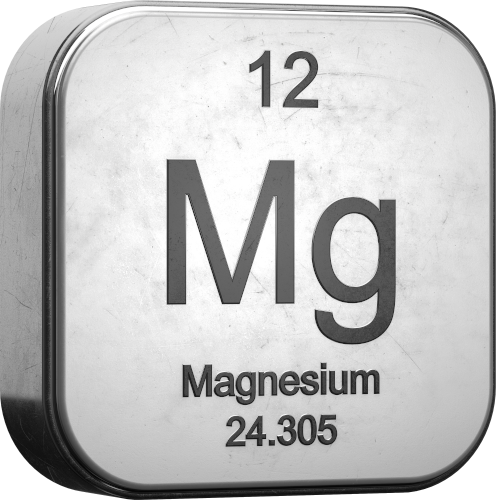

Êtes-vous à risque de carence en magnésium ?
Selon l’âge, le sexe, le mode de vie, et les circonstances, le corps peut avoir un besoin accru en magnésium. Une carence en magnésium peut être causée par une variété de facteurs, y compris, mais sans s’y limiter :
- Âge : La capacité du corps à absorber et à stocker le magnésium diminue avec l’âge.
- Pressions sur l’agriculture : Les demandes accrues sur notre chaîne alimentaire ont laissé notre sol déficient en magnésium, ce qui a entraîné une baisse des concentrations de magnésium dans les aliments riches en ce minéral. Même les produits biologiques ne garantissent pas une teneur suffisante en magnésium.
- Changements de diète : Une plus grande consommation d’aliments transformés ainsi qu’un excès de caféine et d’alcool affectent négativement le magnésium de deux manières. Les aliments transformés sont intrinsèquement faibles en magnésium ; ils sont également riches en sodium, qui épuise le magnésium.
- Circonstances de la vie : Des programmes d’entraînement intenses, des exercices intenses, la grossesse, et l’allaitement sont des facteurs qui contribuent aux carences en magnésium.
- Problèmes de santé intestinale : Le magnésium est absorbé dans tous les intestins, la partie de l’intestin grêle (jéjunum) reliée au côlon étant le principal site d’absorption. Les personnes atteintes du syndrome de l’intestin court et celles ayant subi une chirurgie intestinale sont à risque de carence, car leur capacité d’absorption est réduite.
- Médicaments : La carence en magnésium induite par les médicaments d’ordonnance est courante ; les diurétiques, les inhibiteurs de la pompe à protons, et les médicaments liés à la chimiothérapie peuvent être en cause.
Signes et symptômes d’une carence
Compte tenu de son rôle important dans la santé globale, il n’est pas surprenant qu’un manque de magnésium puisse contribuer à de nombreux problèmes de santé. Le magnésium est un facteur dans le fonctionnement normal des muscles et du système nerveux de notre corps et est responsable de la rétention du calcium pour le développement du squelette et le maintien d’os solides, essentiels pour vieillir en bonne santé. De plus, il agit en synergie avec la vitamine D pour protéger les cellules contre le stress oxydatif et soutenir la fonction immunitaire.
Dans l’ensemble, le «minéral puissant» sert de catalyseur à plus de 300 réactions enzymatiques dans le corps, de sorte qu’une carence peut se manifester de plusieurs façons affectant différentes fonctions du corps :
| Musculaire | Fatigue, faiblesse et douleur musculaires, engourdissements, spasmes (paupières), crampes, tétanie, picotements, fibromyalgie, nystagmus |
| Neurologique | Stress, irritabilité, dépression, anxiété, migraines, maux de tête, étourdissements, insomnie, douleurs à la mâchoire |
| Cardiovasculaire | Hypertension, hypertension primaire, maladie coronarienne, accident vasculaire cérébral, tonus vasculaire anormal, insuffisance cardiaque congestive, cardiopathie ischémique, arythmie, infarctus du myocarde, prééclampsie |
| Endocrinien | Syndrome métabolique, diabète sucré de type II, altération de la tolérance au glucose, maladies thyroïdiennes et parathyroïdiennes |
| Osseux | Osteoporose, fractures |
| Gastro-intestinal | Constipation, ballonnements, perte d’appétit, nausées, vomissements, cirrhose du foie, cancer colorectal |
| Respiratoire | Asthme |
| Psychologique | Problèmes de concentration, TDHA |
| Général | Inflammation chronique de bas grade, réponse oxydative provoquant un dysfonctionnement endothélial, hypokaliémie réfractaire, hypocalcémie réfractaire |
| Magnésium | ||||
|---|---|---|---|---|
| Légende | Enfants | |||
| Age | ANR1 mg/jour | 1–3 ans | 80 | |
| 4–8 ans | 130 | |||
| Hommes | Femmes | |||
| 9–13 ans | 240 | 9–13 ans | 240 | |
| 14–18 ans | 410 | 14–18 ans | 360 | |
| 19–30 ans | 400 | 19–30 ans | 310 | |
| 31–50 ans | 420 | 31–50 ans | 320 | |
| 51–70 ans | 420 | 51–70 ans | 320 | |
| >70 ans | 420 | >70 ans | 320 | |
| Grossesse | Allaitement | |||
| < 18 ans | 400 | < 18 ans | 360 | |
| 19–30 ans | 350 | 19–30 ans | 310 | |
| 31–50 ans | 360 | 31–50 ans | 320 | |
Références : https://openheart.bmj.com/content/5/2/e000775
Comment optimiser votre apport en magnésium
Le magnésium est un minéral vital que notre corps ne peut pas produire ; par conséquent, il doit être ingéré en quantité suffisante via l’alimentation quotidienne ou des suppléments. Si l’apport quotidien recommandé n’est pas atteint sur une longue période, les systèmes de stockage se vident lentement. Adopter un mode de vie sain, éviter le stress, et réduire au minimum la consommation d’alcool peuvent aider à prévenir une carence. Il existe de nombreux aliments riches en magnésium tels que les noix, les graines, et les légumes-feuilles ; cependant, la quantité dont vous avez besoin quotidiennement peut être hors de portée — voir le tableau (sources alimentaires).
Une supplémentation en magnésium biologiquement actif et facilement absorbé vous assurera d’atteindre l’apport quotidien recommandé. Le test de carence en magnésium peut être effectué par analyse de sang ou déterminé en fonction de vos symptômes. Un professionnel de la santé peut vous aider à déterminer la bonne quantité de magnésium pour répondre à vos besoins. Le tableau ci-dessous montre l’apport quotidien recommandé en magnésium, mais des études cliniques récentes suggèrent que différentes formes pourraient être plus bénéfiques pour vous.
1 ANR signifie Apport nutritionnel recommandé : L’apport quotidien moyen suffisant pour jusqu’à 98 % d’un groupe d’âge ou de genre donné.
Existe-t-il un meilleur magnésium pour vous ?
Identifier une carence en magnésium et choisir la bonne forme et le bon dosage pourraient être une intervention thérapeutique simple pour avoir un effet considérable sur votre santé. Il est important de choisir un produit de haute qualité qui fournit le type et la force de magnésium adaptés à vos besoins spécifiques et à votre style de vie.
Pourquoi certains suppléments de magnésium contiennent-ils de la ʟ-taurine ? La ʟ-taurine aide à stabiliser les membranes cellulaires et aide au fonctionnement du système nerveux. Elle gère le mouvement des électrolytes dans et hors des cellules, essentiel pour la génération d’influx nerveux.
| Aliment | Portion | Teneur en magnésium par portion | Portions nécessaires pour atteindre l’AQR (p. ex., une femme de 31–50 ans : 320 mg) | |
|---|---|---|---|---|
| Poisson | ||||
| Saumon |  | 150 g / 0,33 lb | 44 mg | 7,3 = 1,095 kg / 2,4 lb |
| Fruits | ||||
| Mûres |  | 200 g/ 0,44 lb | 60 mg | 5,3 = 1,06 kg / 2,3 lb |
| Fraises |  | 200 g / 0,44 lb | 44 mg | 7,3 = 1,46 kg / 3,2 lb |
| Noix | ||||
| Amandes |  | 30 g / 0,06 lb | 81 mg | 4 = 120 g / 0,27 lb |
| Arachides |  | 30 g / 0,06 lb | 48 mg | 6,7 = 201 g / 0,44 lb |
| Légumes | ||||
| Pois verts |  | 200 g / 0,44 lb | 60 mg | 5,3 = 1,06 kg / 2,3 lb |
| Épinards |  | 100 g / 0,22 lb | 58 mg | 5,5 = 550 g / 1,21 lb |
| Brocoli |  | 200 g / 0,44 lb | 48 mg | 6,7 = 1,34 kg / 2,95 lb |
| Tofu (soja) |  | 150 g /0,33 lb | 45 mg | 7,1 = 1,065 kg / 2,35 lb |
Références : https://openheart.bmj.com/content/5/2/e000775
Tout est question de qualité…
Notre laboratoire certifié ISO 17025, à la pointe de la technologie et doté des équipements les plus avancés sur le plan technologique, garantit que nos produits à base de magnésium répondent aux normes les plus élevées d’identité, de pureté, et de puissance — comme chaque ingrédient entrant dans la composition de nos produits.
OÙ ACHETER
Votre pays actuel:
Souhaitez-vous rester sur ce domaine ou être redirigé vers le site recommandé pour votre région?

